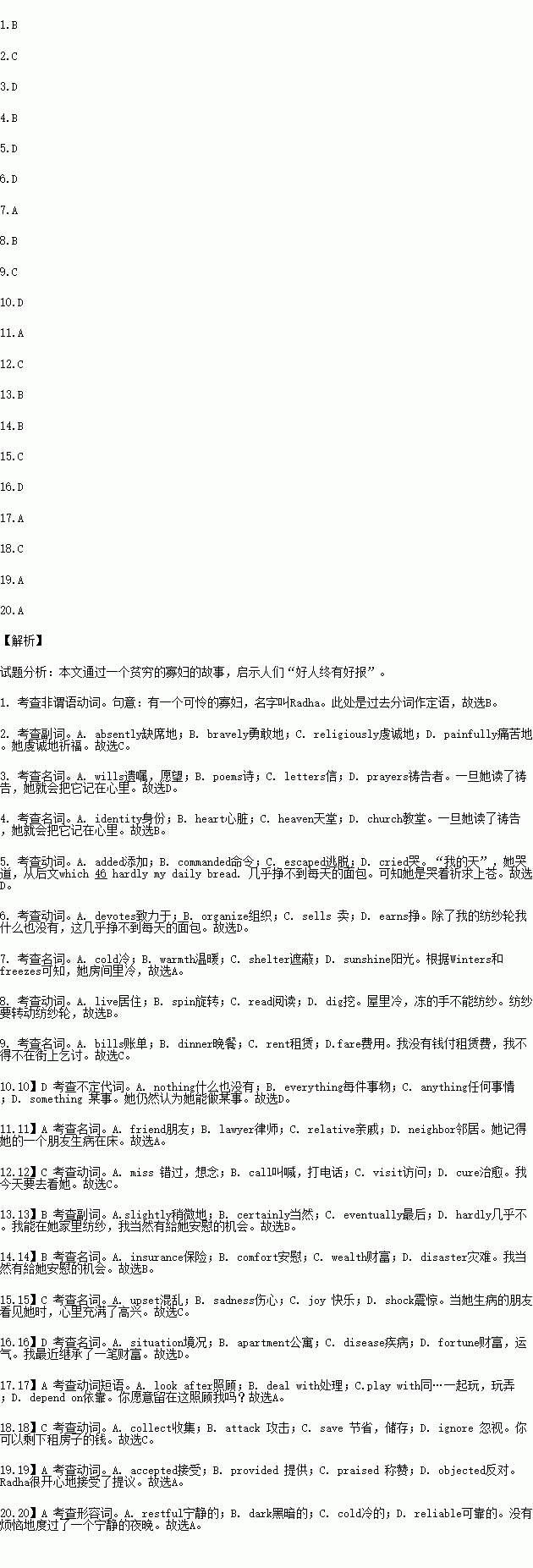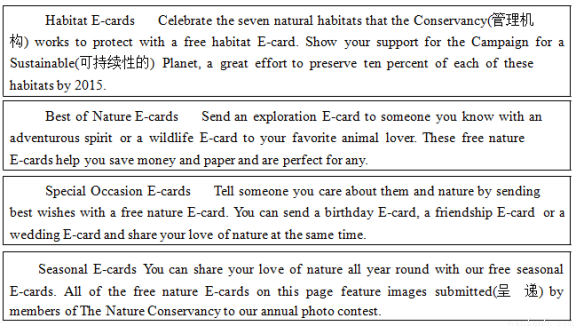题目内容
阅读下面短文,从短文后各题所给的四个选项(A、B、C和D)中,选出可以填入空白处的最佳选项。
There was a poor widow, ________ Radha. Every day before starting her work at the Spin-wheel,she said prayers ________. Once she read her ________ which exhorted (感化、激励) the work of mercy and she took it to ________.
“My good God,” she ________, “how can I do good to others? I have nothing but my spin-wheel, which ________ hardly my daily bread. Winters are fast approaching and the ________ here in my room freezes my fingers that I can hardly ________. I have not paid my ________ and I have to beg myself in the street.”
She thought still there is ________ she can do. She remembered then that a ________ of hers was very sick in bed. “I’ll ________ her today,” Radha said to herself. “I can spin in her house and I shall ________ have chance of giving her some ________." She took two apples from the cupboard—two apples, which were given to her — and went on her way.
When her sick friend saw her, she was overcome with ________. “My dear Radha," she said, “I have recently inherited (继承) a small ________. Would you like to stay here to ________ me? You would ________ the money that you pay in rent and with your spinning and my small inheritance, we could live without any worries.”
Radha ________ the offer very willingly and that same day she moved to her friend’s house where, for the first time after so long she was able to spend a ________ night with no worries.
1.A. nameB. namedC. namingD. to name
2.A. absentlyB. bravelyC. religiouslyD. painfully
3.A. willsB. poemsC. lettersD. prayers
4.A. identityB. heartC. heavenD. church
5.A. addedB. commandedC. escapedD. cried
6.A. devotesB. organizeC. sellsD. earns
7.A. coldB. warmthC. shelterD. sunshine
8.A. liveB. spinC. readD. dig
9.A. billsB. dinnerC. rentD. fare
10.A. nothingB. everythingC. anythingD. something
11.A. friendB. lawyerC. relativeD. neighbor
12.A. missB. callC. visitD. cure
13.A. slightlyB. certainlyC. eventuallyD. hardly
14.A. insuranceB. comfortC. wealthD. disaster
15.A. upsetB. sadnessC. joyD. shock
16.A. situationB. apartmentC. diseaseD. fortune
17.A. look afterB. deal withC. play withD. depend on
18.A. collectB. attackC. saveD. ignore
19.A. acceptedB. providedC. praisedD. objected
20.A. restfulB. darkC. coldD. reliable
 天天向上一本好卷系列答案
天天向上一本好卷系列答案 小学生10分钟应用题系列答案
小学生10分钟应用题系列答案

